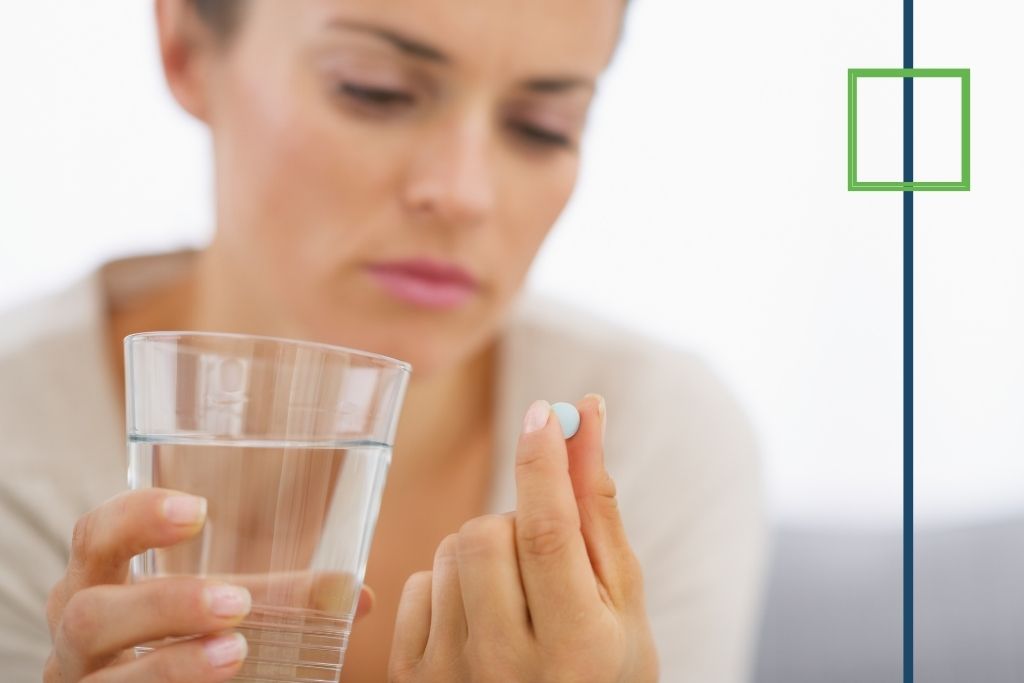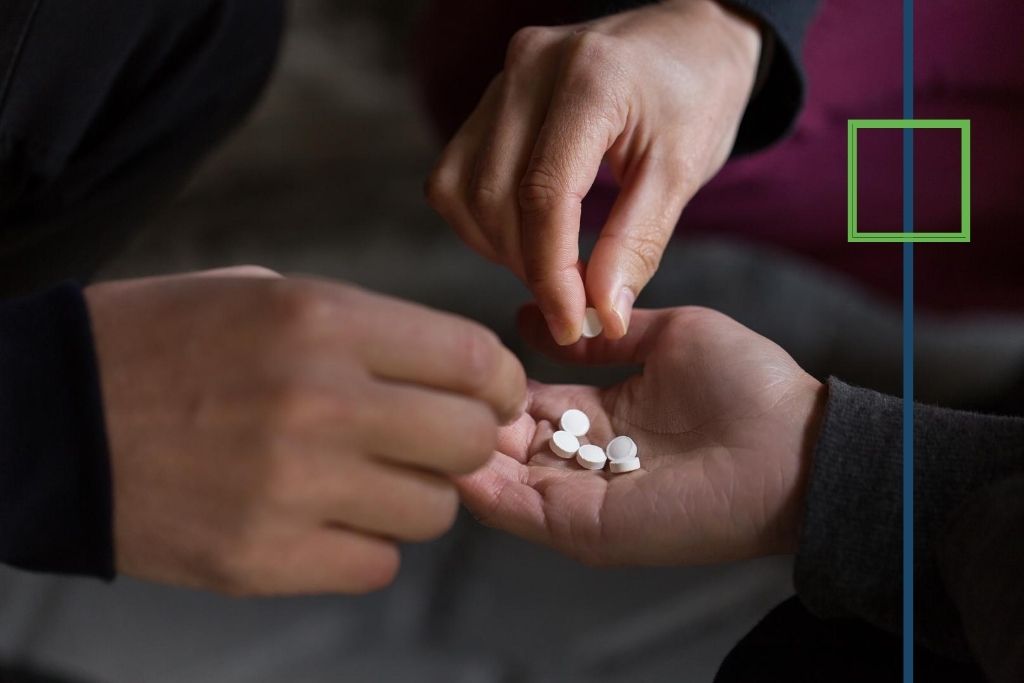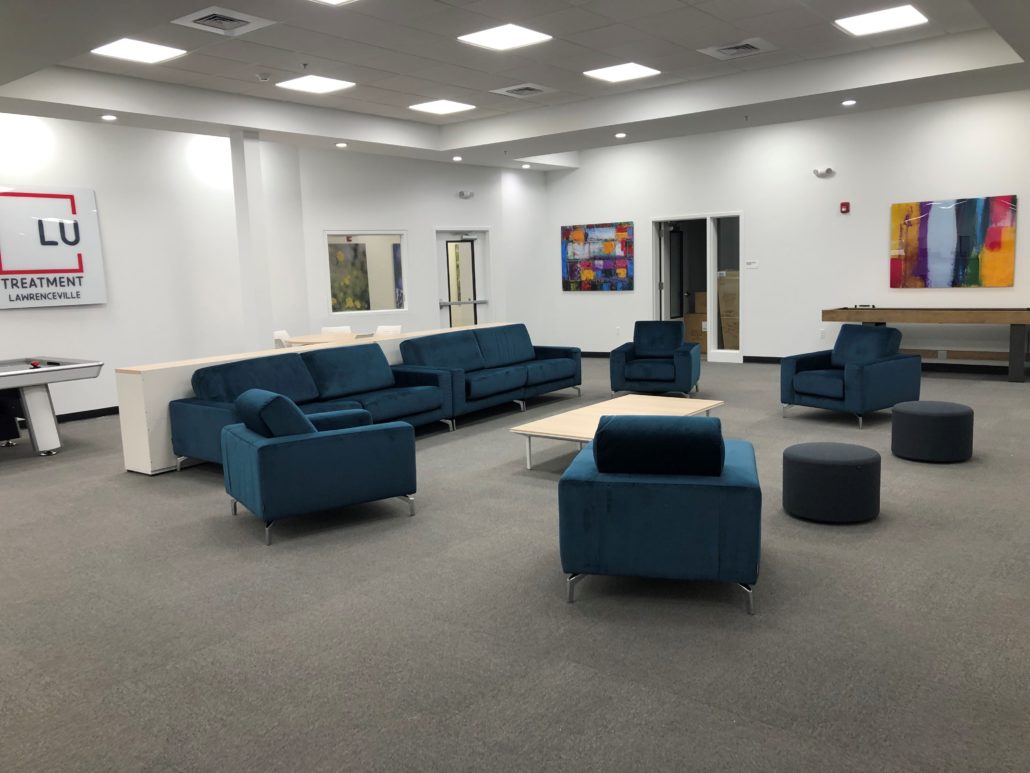Understanding Prescription Drug Addiction
In a survey conducted in 2015, the Substance Abuse and Mental Health Services Administration (SAMHSA) found that 18.9 million Americans aged 12 and older misused prescription drugs in the past year. About 1 percent of Americans aged 12 and older had some prescription drug abuse. [1] If you become addicted to a prescription drug, reach out to us because we may be able to help you explore prescription drug addiction treatment options.
If you have developed a tolerance to your medications, you may find yourself taking more pills than necessary. In some cases, you may take too many pills for longer periods. You may also find that the drug no longer gives you a “high” or provides the same effect on your body. This can push you to take larger doses. As a result, you might need more of the drug to feel normal.
Causes Of Prescription Drug Addiction
Some prescription drugs are more addictive than others. Most addictive drugs affect your brain’s reward system by flooding it with dopamine. This results in a pleasurable “high” that can motivate you to take the drug again. Over time, you might become dependent on the drug to feel “good” or “normal.” You might also develop a tolerance to the drug. This can push you to take larger doses.
Signs of Prescription Drug Addiction
- Taking medication that isn’t prescribed to you or misusing your medication.
- Spending money on drugs even when money is an issue.
- Hiding your drugs and always keeping a supply.
- You use or want to use the substance regularly.
- Sudden anger or aggression when sober.
- You feel out of control.
- You experience symptoms of withdrawal once you stop using the substance.
- People who have drug addiction often struggle to talk about how they feel. This is because drugs block out realistic information that can help them stop using.
- You might need more and more drugs to feel high, which could mean that you have developed a tolerance for the drug you are taking.
- If you have a drug addiction problem, it could cause a lot of problems with your relationships and make you feel anxious.
- You do things that others think are strange or morally wrong to obtain the drug, like stealing or lying about things.
- You try and fail to stop abusing prescription drugs.
Effects Of Prescription Drug Addiction
Prescription drug addiction is a growing problem in the United States. There’s an increasing number of people abusing illegal drugs for their intoxicating effects to treat everyday ailments, rather than seeking professional medical care. If these drugs are not regulated or monitored by physicians, eventually, this can be problematic to society.
While some prescription drugs may enhance feelings of well-being and happiness in the short term, chronic abuse of these medicines can lead to physical and psychological drug dependence on them. Furthermore, addiction to these drugs is going to be hard to overcome without appropriate outside intervention.
It is possible to overdose on these prescriptions drugs with little or no warning because you used to take them as medication at first. Moreover, symptoms of an overdose include fainting, confusion, nausea, and vomiting. In some cases, an overdose can lead to seizures and coma.
-
What are prescription drugs that lead to addiction?
If you are wondering, “what prescription drugs can lead to addiction?”, the answer is prescription opioid painkillers, anxiety medications, sedatives, and stimulants are the drugs that are most frequently abused. Early detection of prescription drug usage and prompt treatment measures may stop the issue from developing into an addiction.

Skip To:
Learn more:
- Opioid Addiction Treatment
- Drug Abuse Treatment
- Effective Addiction CBT Therapy
- Alumni Program
- Signs of Drug Addiction
- Holistic Addiction Treatment Programs, Evidence-Based Therapies, Strong Support System
- How Long Does Meth Stay In Urine? Meth Drug Test Factors, Detox & Treatment
- Top 10 Signs of Steroid Use, Steroid Abuse Symptoms & Addiction Treatment
- Dilated Pupils Drugs, Signs of Drug Use in the Eyes
Prescription Drug Addiction Statistics
Age-related increases in prescription drug use were observed across the board for both genders. In the last 30 days, prescription medication use was reported by 18.0% of children ages 0 to 11, 27.0% of adolescents ages 12 to 19, 46.7% of adults ages 20 to 59, and 85.0% of people ages 60 and older.
45.8%
45.8% of Americans took prescription medications in 2015–2016.
Source: CDC
20%
20% of seniors in high school admit to abusing prescription medications.
Source: CDC
90%
Nearly 90% of older people consistently take 1 or more prescription medications.
Source: CDC

Get Your Life Back
Find Hope & Recovery. Get Safe Comfortable Detox, Addiction Rehab & Mental Health Dual Diagnosis High-Quality Care at the We Level Up Treatment Centers Network.
Hotline (877) 378-4154Some Of The Most Addictive Prescription Drugs
Being addicted to Prescription drugs is as dangerous and life-threatening as illicit drugs or excessive alcohol consumption. Certainly, abuse of these prescription drugs can lead to serious mental and physical health problems.
Opioids
- Opioids such as OxyContin (Oxycodone), Codeine, Fentanyl, and Demerol (Meperidine) are often prescribed for pain. These are all addictive due to the euphoric effect they can give. According to the Centers for Disease Control and Prevention (CDC), Fentanyl is 50 to 100 times stronger than morphine. It creates feelings of euphoria as well as relaxation. [2]
Central Nervous System (CNS) depressants
- Central Nervous System (CNS) depressants include sedatives, tranquilizers, and hypnotics. These drugs can slow your brain activity, making them useful for treating anxiety, panic, acute stress reactions, and sleep disorders. CNS depressants include barbiturates and benzodiazepines. These prescription drugs are also highly addictive due to their calming effect. However, abusing these drugs could affect your behavior or personality. They may also affect your physical body negatively like confusion, changes in vision, slurred speech, and nausea.
- Some of the highly addictive benzodiazepines CNS depressants may include Alprazolam, commonly sold under the brand name Xanax. Firstly, Xanax is prescribed to treat anxiety and panic disorders due to its calming effect. However, some people misuse this drug for its fast-acting sedating effects.
- Another benzodiazepines CNS depressants are Clonazepam (Klonopin) and Diazepam (Valium). Klonopin and Valium are used to treat anxiety and panic disorders and they are also used to treat seizures. Like Xanax, these drugs are often misused for their sedative effects.
Stimulants
- Stimulants such as Adderall (Amphetamine) and Ritalin (Methylphenidate) increase your brain activity because these drugs help boost your alertness and energy levels. Misusing the drugs may cause major effects: euphoria, paranoia, hallucinations, dilated pupils, nausea, and changes in behavior or personality.
Get Help. Get Better. Get Your Life Back.
Searching for Accredited Drug & Alcohol Rehab Centers Near You? Or Mental Health Support?
Even if you have failed previously, relapsed, or are in a difficult crisis, we stand ready to support you. Our trusted behavioral health specialists will not give up on you. Call us when you feel ready or want someone to speak to about therapy alternatives to change your life. Even if we cannot assist you, we will lead you wherever you can get support. There is no obligation. Call our hotline today.
FREE Addiction Hotline – Call 24/7Prescription Drug Addiction Withdrawal Symptoms May Include:
- Drug cravings
- Agitation or irritability
- Runny nose
- Chills
- Digestive problems
- Panic
- Excessive sweating
- Headache
- Trouble sleeping
- Muscle pain
- Nausea
- Anxiety
- Depression
- Extreme fatigue
First-class Facilities & Amenities
World-class High-Quality Addiction & Mental Health Rehabilitation Treatment
Rehab Centers TourRenowned Addiction Centers. Serene Private Facilities. Inpatient rehab programs vary.
Addiction Helpline (877) 378-4154Proven recovery success experience, backed by a Team w/ History of:
15+
Years of Unified Experience
100s
5-Star Reviews Across Our Centers
10K
Recovery Success Stories Across Our Network
- Low Patient to Therapist Ratio
- Onsite Medical Detox Center
- Comprehensive Dual-Diagnosis Treatment
- Complimentary Family & Alumni Programs
- Coaching, Recovery & Personal Development Events
Prescription Drug Addiction Treatment & Detox at We Level Up NJ
Prescription drug addiction is a complex issue that requires long-term treatment – not a quick fix. The first step in overcoming prescription drug addiction is to seek help from your medical provider or a trained professional.
Clearing prescription drugs from the body and overcoming withdrawal symptoms is the goal of detox, which is the first step of treatment for prescription drug addiction.
If you are addicted to drugs, your very first step in recovery should be to medical detox in a safe and medically supervised setting. We Level Up NJ Detox center medically assist patients to clear their systems of addictive substances.

For anyone who suffers from addiction, just the thought of having to stop using can cause severe mental distress. Given that, the medical detox process is managed with the help of a medical detox center. A comprehensive team prescribing medications can alleviate your withdrawal pains while monitoring your health 24 hours. Assuring both your safety and comfort.
We Level Up NJ’s thorough approach to rehabilitation supports several levels of care to ensure the best possible outcome for every patient who enters our doors. From an intensive and more supportive atmosphere for those in the early days of recovery to a comfortable residential-style living dynamic upon completion of addiction to prescription drugs detox, we are here to help guide you down the safe and results-based path to your sobriety.
Once detox is complete, a new doorway in treatment opens up, which is referred to as a residential level of care. Our residential care program slowly and effectively introduces the individual into an atmosphere of therapeutic growth, marked by Master’s level therapists, clinicians, group counselors, psychiatrists, and a community of like-minded individuals with the same aim: to attain sobriety and live a great life.

Some of the many modalities applied and practiced within our residential treatment facility are:
- Cognitive Behavioral Therapy
- 12-Step Groups
- Group Therapy
- Biofeedback
- Alumni Support
- Stabilization
- Holistic Therapy
World-class, Accredited, 5-Star Reviewed, Effective Addiction & Mental Health Programs. Complete Behavioral Health Inpatient Rehab, Detox plus Co-occuring Disorders Therapy.
CALL (877) 378-4154End the Addiction Pain. End the Emotional Rollercoaster. Get Your Life Back. Start Drug, Alcohol & Dual Diagnosis Mental Health Treatment Now. Get Free No-obligation Guidance by Substance Abuse Specialists Who Understand Addiction & Mental Health Recovery & Know How to Help.
Prescription Drug Rehab In NJ
Our prescription drug addiction treatment tailors the program to the individual and the individual to the program of recovery. We begin by assessing our client’s history of mental health, drugs, and alcohol-related past. The needs of each patient are specific and personalized, as we aim to provide comprehensive support for mental health, addiction, and dual diagnosis treatment.
Patients in our residential therapy programs will live comfortably within the facility during this crucial and fragile time. This supportive environment is designed to give patients 24-hour care for sobriety, removing temptations for relapse and applying an air of recovery into every component of the treatment timeline. We Level Up NJ Treatment Center finds that when patients are living in a supportive community, especially during their early recovery process, they can truly focus on what matters most: their recovery.
Make this your opportunity to reclaim your life. Call today to speak with one of our treatment specialists.
Experience Transformative Recovery at the We Level Up Treatment Center.
See our authentic success stories. Get inspired. Get the help you deserve.



Start a New Life
Begin with a free call to an addiction & behavioral health treatment advisor. Learn more about our dual-diagnosis programs. The We Level Up treatment center network delivers various recovery programs at each treatment facility. Call to learn more.
- Personalized Care
- Caring Accountable Staff
- World-class Amenities
- Licensed & Accredited
- Renowned w/ 5-Star Reviews
We’ll Call You
Sources
[1] https://www.samhsa.gov/data/sites/default/files/NSDUH-FFR2-2015/NSDUH-FFR2-2015.htm – Substance Abuse and Mental Health Service Administration (SAMHSA)
[2] https://www.cdc.gov/opioids/basics/fentanyl.html – Centers for Disease Control and Prevention, National Center for Injury Prevention and Control – Prescription Drug Addiction
Misuse of prescription drugs research report. National Institute on Drug Abuse. https://www.drugabuse.gov/publications/research-reports/misuse-prescription-drugs/overview. Accessed Aug. 15, 2022.
Commonly abused drug charts. National Institute on Drug Abuse. https://www.drugabuse.gov/drugs-abuse/commonly-abused-drugs-charts. Accessed April 13, 2021.
Alcohol, tobacco, and other drugs. Substance Abuse and Mental Health Services Administration. https://www.samhsa.gov/find-help/atod. Accessed Sept. 7, 2022.
Prevention. National Institute on Drug Abuse. https://nida.nih.gov/research-topics/prevention. Accessed Sept. 7, 2022.
Drazdowski TK, et al. Motivations for the nonmedical use of prescription drugs in a longitudinal national sample of young adults. Journal of Substance Abuse Treatment. 2020; doi: 10.1016/j.jsat.2020.108013.
Disposal of unused medicines: What you should know. U.S. Food and Drug Administration. https://www.fda.gov/drugs/safe-disposal-medicines/disposal-unused-medicines-what-you-should-know. Accessed April 13, 2021.
Drug facts: Prescription drugs. National Institute on Drug Abuse for Teens. https://teens.drugabuse.gov/drug-facts/prescription-drugs. Accessed April 13, 2021.
Resources for families coping with mental and substance use disorders. Substance Abuse and Mental Health Services Administration. https://www.samhsa.gov/families. Accessed Sept. 30, 2022.